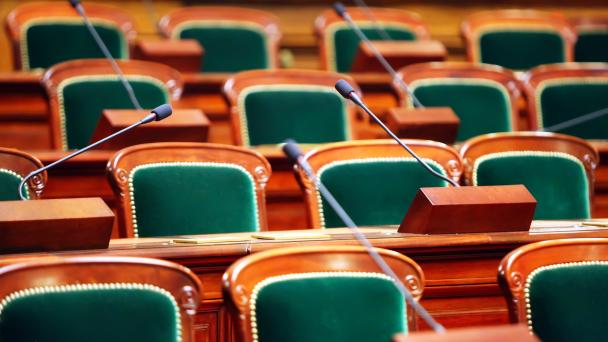BSA 40: A liberalisation in attitudes?


In any country, domestically the state plays two key roles. But in both cases the way in which it exercises that responsibility is potentially contentious. Its first role is to take money in the form of taxes and allocate the proceeds through various forms of spending. This process inevitably gives rise to debate about who should be taxed and by how much, and on whom and what the money should be spent. Some argue the state should be taking decisions with a view to reducing inequality and unfairness. Others take the view that it should primarily be setting the conditions for economic growth from which all can profit. Those taking the former view typically incline to the view that government should be playing a substantial role in the country’s economic life. In contrast, those supporting the latter perspective often argue that government should stand back and avoid quashing the spirit of entrepreneurial enterprise.
The state’s second role is no less important – or disputed. This is to act as the country’s moral and cultural compass. Any society has to make decisions about the acceptability of various behaviours. The state can be used to penalise behaviour that is deemed unacceptable, not least through the criminal sanction of the law, while incentivising actions that are thought to be socially beneficial. Society’s judgements about what is deemed acceptable or unacceptable will potentially reflect both people’s sense of ‘right’ or ‘wrong’, and their view as to what constitutes ‘normal’ behaviour. However, people can disagree about whether particular behaviours are unacceptable and take a different view about how much a society should be attempting to police the behaviour of its members in the first place.
Some people feel that securing adherence to society’s moral code and cultural norms is crucial for social cohesion. Others believe that it is better to allow individuals to decide these issues for themselves.
Given that both roles are the subject of debate and contention, people’s views about how they should be performed could well change over time. This report is about the extent they have done so in Britain and why. Since 1983, the National Centre for Social Research (NatCen) has conducted an annual survey of what people in Britain believe and think about a wide range of social and political issues. Each year NatCen’s British Social Attitudes (BSA) survey has covered a varying menu of subjects in depth. At the same time, it has addressed some topics on a regular basis. As a result, the survey has charted how attitudes have evolved over what is now a 40-year period, enabling the survey to fulfil one of its central aims when it was inaugurated by NatCen’s co-founder, the late Sir Roger Jowell – that is, to identify and understand long-term changes in the climate of public opinion in Britain (Jowell and Airey, 1984).
Britain has witnessed a great deal of social change since 1983, change that could well have had an impact on beliefs and attitudes. Many more people now go to university, while fewer attend any kind of religious service. More are employed in white-collar jobs and fewer in blue-collar ones. More women, including those with younger children, go out to work, while a growing population of older people means there are more men and women who are no longer working at all. Immigration has ensured the country has become more ethnically diverse, while a decline in rates of marriage has been accompanied by more diverse types of family formation, including by same-sex couples whose partnerships are now legally recognised. Reflecting these changes, debates about equality are no longer primarily focused on differences between classes, and more often are about how fairly a variety of other groups are being treated, including women, those from a minority ethnic background, and those who identify as LGBTQ+.
There have also been important political changes. In the 1980s, the state divested itself of many a nationalised industry, yet more recently has taken some responsibility for the provision of childcare. Welfare for those of working age has been cut back, while the level of the state pension has been protected. Not that all political change has been unidirectional. Between 1983 and 1997, Britain was governed by a Conservative government that aimed to reduce the size of government. Then, between 1997 and 2010, it was governed by a ‘New’ Labour administration that eventually increased the size of the state once again, though at the same time placed less emphasis on using the welfare system as an instrument to reduce inequality. Meanwhile, since 2010, a variety of Conservative-led administrations have been at the helm once again. They succeeded in reducing the size of the state (and the provision of welfare) once more – only to be forced into unprecedented state intervention in the wake of the COVID-19 pandemic, much as the previous Labour government had to do in the face of the 2007 to 2008 banking crisis. At the same time, government is now confronted for the first time since the 1980s with both the scourge of price inflation, significant industrial unrest, and serious tension between the West and Russia.
Between them, the seven main chapters in this report illustrate and analyse how far social and political attitudes towards the two key domestic roles of the state have changed in the wake of these developments. One clear theme emerges. On the one hand, attitudes towards what is and is not acceptable behaviour have often undergone profound change, such that the balance of opinion is now often very different from what it was 40 years ago. On the other hand, much like public policy itself, attitudes towards the economic role of the state, although far from unvarying, have largely not followed a secular trend in one particular direction. Meanwhile, demographic differences in attitudes towards the economic role of the state have proven to be remarkably stable.
British Social Attitudes (BSA) could not take place without its generous funders. In 2022 we gratefully acknowledge the support of the Department for Work and Pensions, Government Equalities Office, Nuffield Trust, The King’s Fund, University of Reading, University of Warwick and National Institute for Health and Care Research.
The ESRC continues to support the participation of Britain in the International Social Survey Programme (ISSP), a collaboration whereby surveys in 42 countries administer an identical module of questions in order to facilitate comparative research. Some of the findings on attitudes to families and changing gender roles are described in this year’s report.
As well as drawing on nearly 40 years of BSA data, this year’s report also includes analysis of data collected via the NatCen Opinion Panel – which follows up BSA respondents and invites them to complete additional surveys online and by telephone – and we are grateful to the research team behind the panel, particularly Curtis Jessop.
The BSA survey is a team effort. The 2022 survey was led by Natalie Maplethorpe with support from Joanna White, Victoria Ratti, Joseph Cant, Imogen Stevenson and Katie Kitchen. We would also like to thank Hilary Gyebi-Ababio for her project management support.
The survey is heavily dependent on staff who organise fieldwork and compile and distribute the survey’s extensive documentation, for which we pay particular thanks to our colleagues in the National Centre for Social Research’s operations office in Brentwood. Thanks are also due to our telephone interviewers and telephone unit managers who provided a valuable alternative to the online questionnaire. We are also grateful to Pamela Ritchie in our computing department who expertly translates our questions into an online and telephone survey program, to Priya Gordon and Richard Boreham who had the task of editing, checking and documenting the data, and to statisticians Alina Carabat and Fritz Anker who led on sampling, weighting and statistical guidance.
Finally, we must praise all the people who anonymously gave up their time to take part in one of our surveys over the last forty years, not least those who participated in 2022. Without them, none of this would be possible.








Receive a regular update, sent directly to your inbox, with a summary of our current events, research, blogs and comment.
Subscribe